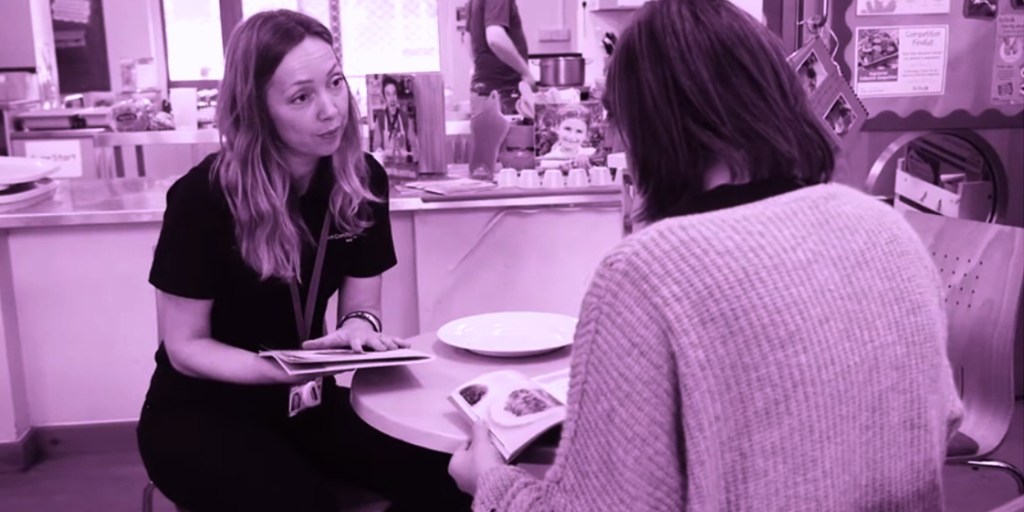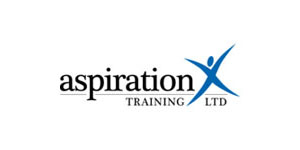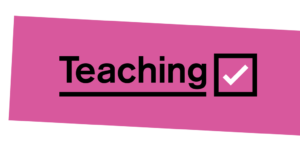Health Trainer careers guide and job profile
Want to make a big difference to people's lives and health? A career as a Health Trainer could be the right choice for you!
Getting into Health Trainer careers
How much money can you earn as a Health Trainer?
These LMI Job Trends give you a sneak peek of how much you could earn starting out for this career, and how much your salary could grow with experience.
Average salary for healthcare jobs
Recent labour market information says you can earn on average between £16,000 and £50,000 a year as a Health Trainer in the UK.
Your starting salary can vary because of factors like level of experience, training, location or the size of the company. Your salary as a Health Trainer will increase over time as you build skills, knowledge, and experience.
Health & Science Career FAQs
Is there something you’d like to know about health and science careers? Maybe we can help!
Skills you need to become a Health Trainer
Useful skills to put in your CV:
- Great communication skills (this includes active listening!) – health is a sensitive area, especially if someone is struggling to change learned habits around addiction, so you need to be able to motivate others and inspire trust
- Teamwork skills – part of your job will be forming good working relationships with organisations and clients
- Organisation skills (aka self-management skills) will help you plan your action plans with clients and help them know what they should aim to achieve and by when
- Problem solving skills – you’ll need to decide how best to apply your health knowledge to a client’s individual needs
- The ability to use your initiative
- Digital skills – to be able to use a computer and the main software packages competently
How Do You Get These Skills?
Vocational qualifications and work experience will help you build these skills over time.
What Qualifications & Training Do You Need For Healthcare Careers?
School and training
You don’t need a degree to become a health trainer. In fact, there are no formal entry requirements, so you could get started as a school leaver. However, it’s a good idea to study for the City and Guilds level 3 Certificate for Health Trainers. This is nationally recognised training that should help you successfully apply for health trainer roles.
You’ll study for this nationally recognised Certificate as a trainee health trainer, because you have to be in full-time employment to do the training. Once you’ve got your Certificate, you can work as a full health trainer.
Did you know? In some cases, the cost of your training might be funded by your employers! In some cases Government funding may also be available.
It may be possible to train as a Health Trainer if you are already working in a related role such as pharmacy assistant or in a leisure centre.
You will also need clearance from the Disclosure and Barring Service (DBS).
College
You could do a college course, which would teach you some of the skills and knowledge you need in this job. Relevant courses include:
- Level 2 Award in Improving the Public’s Health
- Level 2 Award in Nutrition for Health
You’ll usually need 2 or more GCSEs at grades 9 to 3 (A* to D), or equivalent, for a level 2 course.
BTECs
As an alternative to A-Levels, you can do BTECs from the age of 16. There are a number of BTEC subjects you might want to consider if you are interested in becoming a Health Trainer.
- BTEC National Diploma in Health and Social Care
You’ll normally need 2 or more GCSEs at grades 9-3 (A*-D) or equivalent for a Level 2 or 3 course. If your qualifications are lower than this, you’ll most likely start on a Level 1 course.
University degrees and graduates
Although you don’t need a degree to become a Health Trainer, having one can be an advantage as it shows you have the right knowledge and skills for a career in healthcare.
UCAS has more information on degree courses and entry requirements.
A-Levels
A Levels are academic qualifications that come after GCSEs. A Levels can be an ideal stepping stone to an advanced apprenticeship, a degree, a job, or going straight into a freelance career.
You’ll normally need GCSEs at grade 4 (C) or above in English and Maths. Any relevant subjects you get the chance to study that relate to healthcare such as Science and Health & Social Care will give you an advantage and useful knowledge and skills you might need to progress into further learning.
2 to 3 relevant A levels, or equivalent, are usually required to complete a degree.
Apprenticeships
An apprenticeship is a scheme where you train while earning a starting salary.
With an apprenticeship (or advanced apprenticeship) you’ll have a paid job with an employer that includes structured training and learning. This training leads to an official qualification that’s recognised by employers as an industry standard.
The following advanced apprenticeships may help you get into this role:
- Community sport and health officer
- Community health and wellbeing worker
You may be able to move on to a Public health practitioner degree apprenticeship.
Anyone over 16 can study for an apprenticeship. You will normally need at least 5 GCSEs at grades 4-9 (A*-C) to study for an apprenticeship, including English and Maths.
T-Levels
T-Levels are a choice for learners after GCSEs alongside apprenticeships and A-levels.
T Levels, an alternative to A-Levels, are qualifications in vocational, technical and hands-on subjects that you can choose to do after GCSEs instead of traditional academic qualifications.
They include a mixture of classroom-based learning and industry placements where you can put your new skills into practice in real-world scenarios.
A T-Level in Health could be a good choice for a prospective Health Trainer.
You may need 4 or 5 GCSEs at grades 9 to 4 (A* to C), or equivalent, including English and maths for T Levels.
Career Progression
Where your career could take you...
With experience, you could progress to team supervisor, or senior health improvement specialist.
You could also move into related careers in health promotion or community development.
What Work Experience Do You Need For Healthcare Jobs?
Work Experience Tips
It can help you decide if this is the right career for you if you have previously done work experience in a healthcare environment. Examples of relevant work experience include:
- Job shadowing (even if it’s just for a day)
- Work placements in a company
- Year-long industry placements on a sandwich degree course
Any work experience where you have demonstrated your healthcare skills can help your application. Visit the NHS Work Experience website to find healthcare work experience opportunities in your area.
It can be also help to have experience or qualifications (or both) in areas like nutrition, weight management, encouraging healthy lifestyles, instructing on exercise or using a gym.
Work experience tipsVolunteering Tips
You can get some of the skills and experience you need for this job through voluntary experience with local community groups.
You can get advice about work experience in the NHS before applying for jobs or training.
You can also contact The National Council for Voluntary Organisations about work placements.
What Does A Health Trainer Do?
Some example daily responsibilities include:
- introduce people to relevant local services
- help people understand how their behaviour affects their health
- support and motivate individuals to change harmful habits
- explain the benefits of healthier food and lifestyle choices
- record activity levels and results, and use these to motivate clients
- keep up to date with what services are available locally
- work with individuals or with larger groups
You could work in an office or in the community.
Watch the video below to hear from real people in Health Trainer careers!
How To Find Health Trainer Jobs: Next Steps
To find jobs for young people in this role, search on jobs boards for early career roles and opportunities with keywords such as ‘Health Trainer’.
Note: terms such as ‘practitioner’, ‘manager’ ‘specialist’ and ‘consultant’ may have different meanings for different jobs. Make sure you check the person specification of the role to fully understand the skills and knowledge required, and what you would be doing.
You can take a look at our database of local opportunities to see if there are any relevant jobs, work placements, or careers events and workshops to help you get started. Create Your Future!
Local OpportunitiesGet Into Health and Science With Youth-Friendly Employers
These employers and organisations are here to help. They care about your potential and desire to learn, not just your qualifications and experience. They may be able to offer traineeships, apprenticeships, graduate schemes, first jobs, careers advice, wellbeing support and much more.
Health And Science Career Tips & Opportunities
Health And Science Career Guides
View job descriptions with average UK salary, useful qualifications and a variety of routes into this career.
-
Apprenticeships with Youth Friendly Employer ABP
-
Care Worker
-
Contact Lens Optician – ABDO Careers in Eyecare
-
Cosmetic Scientist
-
Dispensing Optician – ABDO Careers in Eyecare
-
Ecologist Careers
-
Eye Clinic Liaison Officer (ECLO) – ABDO Careers in Eyecare
-
Food Manufacturing Inspector Careers
-
Food Technologist Careers
See All Our Youth-Friendly Employers






































































YES! I Want More Free Careers Help...
So what are you waiting for? Grab your future.












































